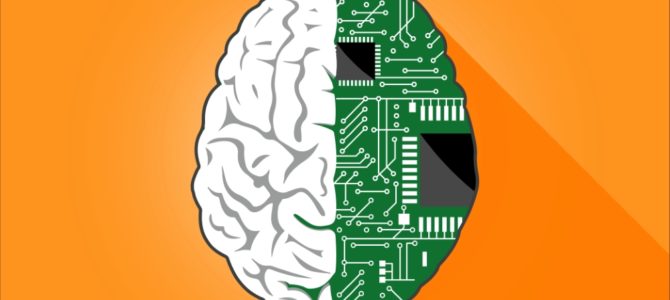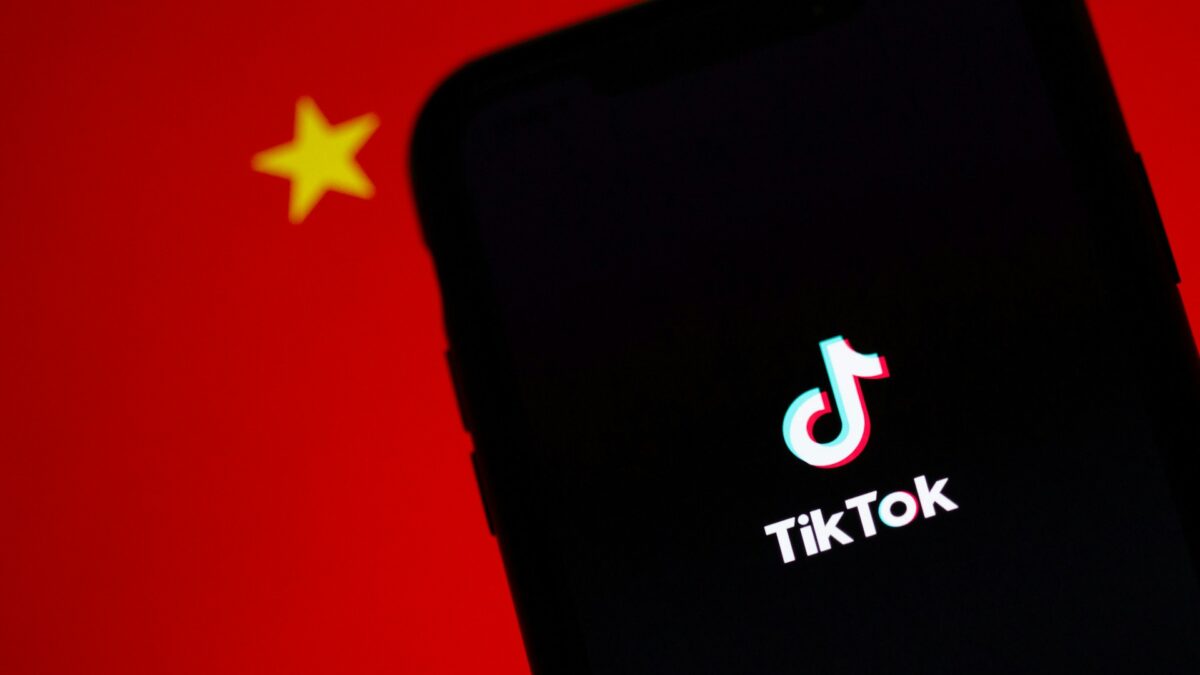
Transhumanists have hyped the new religion of high technology for decades now. The basic idea, fairly prevalent in Silicon Valley, is that rapid advances in scientific knowledge and tech innovation will culminate in our de facto omniscience and omnipotence. Even though humanity is lost in a godless cosmos, digital devices will allow us to transcend our ape-like forms.
As Google’s Ray Kurzweil famously quipped, “Does God exist? I would say, ‘Not yet.’”
One day soon, they promise, we’ll use artificial intelligence to overcome the limits of our meat-based cognition. According to Yuval Noah Harari’s 2015 best-seller “Homo Deus,” computer programmers will realize the age-old fantasies of shamans and prophets by creating a virtual version of the spiritual realm. These Davos darlings are certain “God is dead,” but Google still wants to patent His best ideas.
Ultimately, they hope to replicate the fabric of ourselves in cyberspace, where we can all live happily ever after — that is, until the electricity goes out. A recent paper by Russian transhumanist Alexey Turchin argues this “digital resurrection” is not only possible but necessary to reach our full potential. We just need enough power — both computational and electric — to create a virtual afterlife and then keep it running.
For Turchin, the solution is to construct a Dyson Sphere around the sun — a megastructure 186 million miles in diameter that’s covered in solar panels to capture the dying star’s rays. That way, we can run the gargantuan super-computers required to house our digital selves. Sounds easy enough, I suppose. Maybe we can fill the potholes in the road while we’re at it.
Joining the race to boost fashionable ideas, the once sober Popular Mechanics covered Turchin’s work enthusiastically:
Think about the end of your life and what might happen next. … If your soul exists, you continue on after death and everything is wonderful. And if it doesn’t and your fate is utter demise, well, some part of you could still continue infinitely as a digital copy. ‘It’s a win-win situation in both scenarios,’ Turchin says.
If these lunatics convince enough people their scheme is truly working, they’ll expect the rest of us to treat these gibbering clones like real people. Even worse, given the shrill demands for “religious tolerance,” we’ll have to pretend we enjoy their company.
Into The Machine
The concept behind digital resurrection goes back to the “Ship of Theseus” paradox, articulated by the ancient Greeks. Imagine you have a huge wooden ship. You gradually replace the rotten boards with new wood, plank by plank. Eventually, every old part has been replaced by something new. Is it not the same ship as before, only better?
Transhumanists seek to do the same with the human personality. Every neuron will be replaced by networked processors — and then some. For example, to preserve himself for future immortality, Alexey Turchin submits the details of his life to “ubiquitous surveillance.” In addition to keeping a trivia-packed diary, he records every conversation, videotapes his behaviors, and wears an EEG headset while making art or listening to music. He has faith that one day some godlike AI will use this tedious information to “resurrect” him.
You could call this self-obsessed behavior a personal quirk, but Turchin is hardly alone in this endeavor. For many, it’s been part of the new normal since before the New Normal.
The Scan Truck is a good illustration, both literally and allegorically. Based in Los Angeles, the company developed a “mobile photogrammetry studio” decked out with more than 200 digital cameras “to capture the uppermost, photorealistic models.” The experience is like stepping into an inside-out insect eye.
Subjects who enter The Scan Truck’s portable Panopticon — preferably in the buff — have a million pics snapped from every possible angle. The resulting composite image is then used to create a “digital double.” This second self includes every scar, pore, and birthmark. The service has become enormously popular among special effects specialists in the movie industry. It’s also used to create hyper-realistic avatars to inhabit a virtual environment.
Clever enough, but what about one’s inner self?
‘Alexa, Upload My Soul’
In line with Turchin’s methodology, a “digital immortality industry” has emerged to monitor every aspect of your life. Their services, as advertised, will create a lasting imprint of your earthly persona for friends and family to enjoy when you’re gone.
Start-ups with names like Eterni.me, Replika, DeadSocial, and Deep Nostalgia are working hard to re-create deceased loved ones from photographs, home videos, personal diaries, intimate letters, second-hand anecdotes, and of course, online tracking technology. Replika offers an AI talk therapy app that probes living subjects to get at the core of their personality. The constant refrain is that we need to “break down privacy barriers” and “become vulnerable” to digital invasion.
For a modest price, this data is correlated with the subject’s physical attributes. The resulting electro-wraith can then speak to the bereaved from beyond the grave. Just open your laptop, and there’s your late grandma, insisting you have another plate of chicken casserole.
What about grandma’s subjective soul, though — that mysterious entity who watched you grow up from behind her smiling eyes?
When transhumanists tackle this issue — which is less often than you’d think — they typically deny the existence of a stable, spiritual self that’s distinct from brain activity. When the body dies, that “soul” will disappear. That’s why creating an electronic backup is so important.
For one thing, AI augmentation will make Grandma 2.0 smarter and less whimsical. For another, some rude guest is bound to sit in her empty chair if you don’t replace her with a digital super-being.
Throughout that process, the still-embodied subject is scanned, probed, and reconstructed as a digital double. Making multiple copies is even better, but anything beats total oblivion. As years pass, the biological version will wither like a butterfly cocoon. The digital double will soar into the future on a cloud of 1’s and 0’s.
For those guided by materialist philosophies — where transcendence is only available via physical means — there’s no better way to overcome the finality of death. Naturally, transhumanists tend to see people who believe in a spiritual existence beyond this mortal coil as quaint at best. As a quaint heathen myself, I suspect their well-heeled megalomania is far more irrational than any traditional religion.
Transhuman Heaven Sounds Like Hell
These technocratic delusions are only a problem to the extent we’re forced to participate. I’m content to live my life as a caveman and let others become cyborgs, so long as they keep their crossed wires to themselves. That’s not the world they’re creating, though. The insidious elements of their techno-cult — from materialist self-obsession to ubiquitous surveillance — have crept into our daily lives for decades now.
Consider the widespread adoption of monitored electronic communication. In olden times, the idea that our most intimate letters could be intercepted, analyzed, and added to detailed personal dossiers kept by tech executives and government agents — to be used at their pleasure — would be laughable. Today, it’s as routine as driving a few blocks to the grocery store.
In the blink of an eye, we saw the rapid migration of personal interaction to social media. It’s now normal to document a child’s life for public consumption by total strangers. For many, the privacy barriers have already been broken down. We’ve made ourselves vulnerable. The craziest part is that most have enjoyed it.
The next steps in this supposedly inevitable process are just over the horizon. After years of stops and starts, virtual reality will soon be as commonplace as a television set. Many youngsters already idolize “virtual influencers“ who dance across their touchscreens. These bubblegum apparitions are elaborate, entirely fictitious pop stars made from scratch by devious programmers. Some kids have no clue they’re not real people.
For years now, men of fighting age have retreated into video games. Would-be mothers are using dating apps to run out the biological clock. Having been conditioned by porn for generations, wealthy incels are sleeping with eerily convincing silicone dolls. Super-real sexbots are just around the corner. When the snozzberries taste like snozzberries, you’ll know the end is nigh.
Virtualized Detachment From Reality
In all of this, we see an increasing detachment from the real world of visceral struggle, heartbreak, and redemption. Without these challenges, people don’t develop character or deep social bonds. Anime-obsessed man-babies are a symptom of this tendency. The insane desire for “digital immortality” is another.
Technocracy is being normalized at an alarming pace. If a population can be convinced that kids need state-supplied hormone blockers to become self-realized, it’s only a matter of time before they’re ready to upload their souls to corporate data banks. In fact, just hack into their smartphone and you’ll see they’re already doing it.
One of the darker tenets of the techno-cult is that their innovations are necessary for survival. Anyone who chooses to reject body modification, cognitive enhancement, or mind-uploading will be like job applicants who come to an interview with no smartphone or social media account. They’ll get left in the dust.
In a competitive technocracy, organic humans are doomed to extinction. Trendy cyborgs will transition to digital immortality, while the rest of us become fossils. To the extent that Big Tech holds sway over our lives, it’s a self-fulfilling prophecy.
Yet the transhumanists have it backward — at least in the long run. The Egyptians were convinced they would reign forever, as were the Romans. Ultimately, however, their arrogance proved futile. The same will be said of Silicon Valley oligarchs and their consumerist disciples. One day, “immortal digital souls” will be displayed in museums like crumbling marble statues.
Until then, we’d be wise to build high fences as nature takes its course. We’re still free to choose our own paths. This is a spiritual conflict on their terms, but I’m keeping faith that anything is possible.









